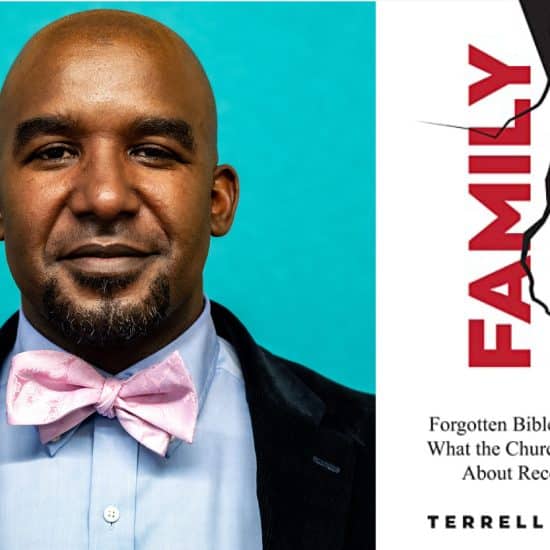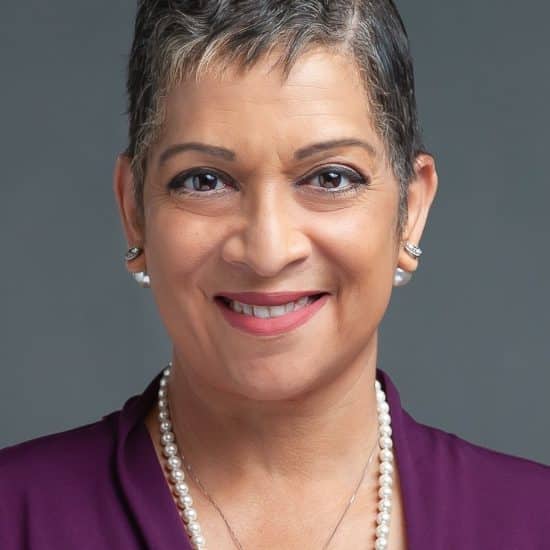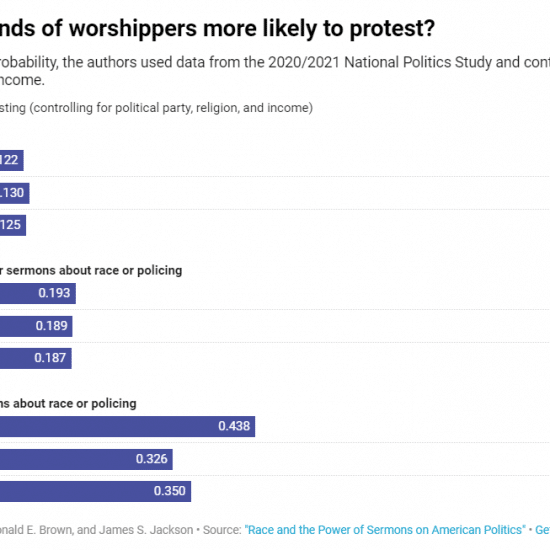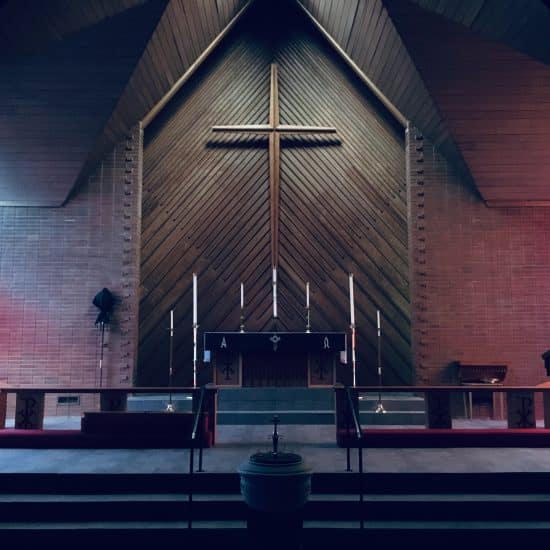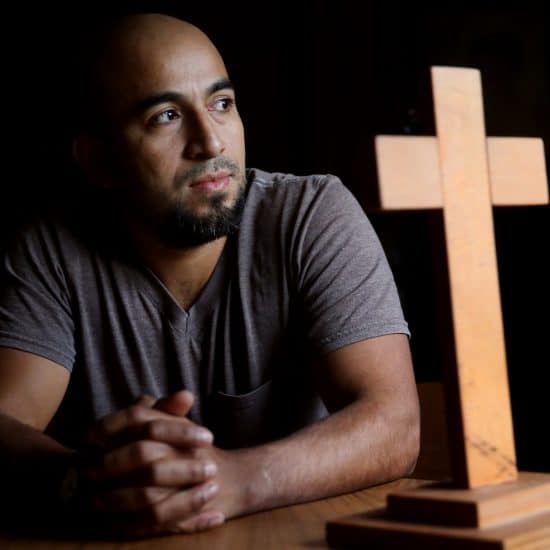WICHITA FALLS—When Pastor Bob McCartney arrived at First Baptist Church in Wichita Falls, he wanted to lead the congregation to minister better to two distinct populations—students at Midwestern State University and the airmen and their families at Sheppard Air Force Base.
The students now meet in a newly constructed building on the church campus each Tuesday night. But to reach military families, the church decided to go to them.
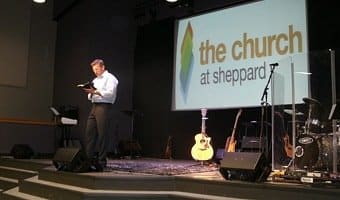
|
Eden Hills Baptist Church sat near the base gates. It had been a strong church in decades past but dwindled to a handful of members in recent years. A joint vision between First Baptist and the remnant at Eden Hills led to a renovation and rebirth of the fellowship as The Church at Sheppard.
Rather than adopt The Church at Sheppard as a mission congregation, First Baptist chose to make it a satellite church. While the music is live, and Robb Havens serves as campus pastor, McCartney’s sermons are broadcasted through a television signal, and he is the preacher for both campuses.
Multiple families from First Baptist went to the Church at Sheppard to serve as a core leadership group.
Because Sheppard primarily is used for training, its population constantly rotates.
“That’s what ultimately drove us to the satellite concept. What we realize is that The Church at Sheppard will have constant turnover,” McCartney said.
“The only thing The Church at Sheppard maybe should have but doesn’t is a revolving door. We’re going to have people coming in, and we’re going to have people going out. There will be a constant demand on outreach, but that’s why we did it. It’s a place where we can lead people to make a decision to trust Christ, developing them to be like Christ, and then deploying them in service to Christ.”
The Church at Sheppard also will give Havens a chance to grow into his call to ministry, McCartney said.
“His role is a shepherding role. He will be there for the people in the sense of caring for their needs, the visiting ministry and the evangelistic ministry,” he explained. “If they have need for biblical counsel, need for advice, need someone to pray with, he’s the guy on the scene to do that.”
On those Sundays when McCartney is out of the pulpit himself, Havens will preach at The Church at Sheppard “because we want to raise him up and train him,”
The couples who moved from the main campus to The Church at Sheppard were asked for an 18-month commitment.
“We felt they needed significant buy-in. They had to truly be as committed to the effort as I was and our leadership team was. We felt a revolving door in our core group of volunteers out there would be catastrophic,” McCartney explained.
The leadership team spent a great deal of time researching best practices of churches already engaged in multisite ministry and adopted those that fit the situation in Wichita Falls best.
“We felt we needed to share those best practices” with the core group in training sessions, he said.
McCartney preached on the vision for The Church at Sheppard in two sermons. Couples who were interested in serving in the volunteer corps then were engaged in one-on-one interviews where the level of commitment and the things that would be sacrificed were carefully spelled out for them, McCartney said.
“We had a number of people who looked at us and said: ‘We love this. We’ll support you in this. We’ll do anything we can, but we realize now, this isn’t for us,’” he said.
While the need for The Church at Sheppard appeared obvious, it did not come without sacrifice, McCartney noted.
“We talked about three types of sacrifice that we were going to make it if was going to work. One is the sacrifice of resources. We’ve had people give sacrificially, but we’ve had ministries inside our church that have had to sacrifice bud-get funds. From an economic standpoint, this may not have been the best, most strategic time to plant a satellite congregation. Our ministries have sacrificed to make this work,” he said.
There also has been a relational sacrifice. “That is, ‘I’m going to have leave my life group, I’m going to have to leave this service that I enjoy and these people that I’m associated with. And while I’m going to be around people I like and certainly build a relationship with, I’m going to sacrifice relationally.’
“And we talked about a leadership sacrifice, because we took some of our best—some of our best leaders, some of our best teachers—and we asked them to take this assignment,” McCartney said.
“I don’t know what other pastors would say, but let me tell you from my perspective, this is not easy. This is exceptionally difficult. It’s obviously difficult financially; it’s difficult technologically; it’s difficult relationally. One of the things the staff says around here is, ‘We have complicated matters greatly.’ But we believe it is worth the sacrifice and the complications to reach people for Christ.”
As First Baptist’s leadership team talked to other churches involved in multisite minstry, they were told it would take two years to get it going.
“We took a year and two months, but it took every bit of that. If you’re going to do this well, I think you need ramp up time. You need time to recruit and train. … Our recruiting process was every bit as important as our training.
“It’s the boldest thing I’ve every done in ministry, but the church has to do bold things. We wonder why we’re losing ground in the country and the culture, and while we can see a growth trajectory, the population far outpaces the growth of Christianity in America.
“… I think faith favors the bold. I think God is honored when he’s leading us, but we take a bold step to follow him.”

